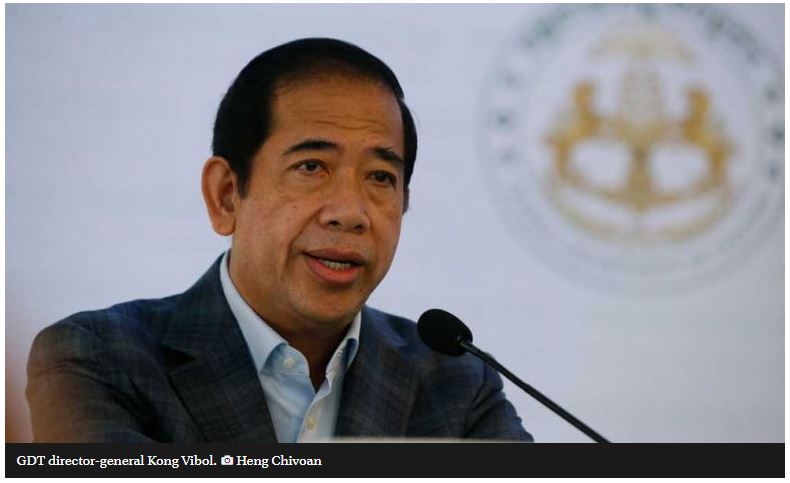Cambodia: Delay in e-commerce VAT explained
The General Department of Taxation (GDT) boss has shed some more light on the department’s decision to postpone the implementation of value-added tax (VAT) on e-commerce transactions until April 1.
GDT director-general Kong Vibol on March 17 led a discussion on income tax, capital gains tax and VAT for e-commerce.
This comes exactly two months after the GDT issued Notification No 776 – signed by Vibol – authorising the delay in the implementation of last year’s Prakas No 542 on the rules and procedures for implementing VAT on e-commerce transactions.
Vibol told the discussion that the postponement was made in order to allow businesses to register and prepare for the implementation, and give them time for troubleshooting so as to avoid technical problems down the line.
“The delay is for the private sector [e-commerce] to register as well as be ready before the implementation for their businesses to run smoothly and avoid problems … Since we started the implementation, we have already been preparing the IT [information technology] programmes necessary for these operations,” he said.
According to the director-general, a number of foreign companies and enterprises have registered since the announcement, including Microsoft, Mastercard and TikTok, while Google has also prepared registration documents to apply VAT on its digital goods and services.
Rin Sokret, CEO of Sokret Piphea Cosmetic Inc, an online importer of beauty products, said that the decision of the government and the GDT to postpone the implementation of VAT on e-commerce transactions is welcome as it allows online business owners to have a clearer understanding of the sector, which has only recently begun to experience growth.
“It’s a good thing that online businesses owners have to go and register properly with the relevant ministries and institutions, because this legitimises the industry,” he said.
But he criticised business owners who have yet to register, saying that “properly paying tax is our duty as citizens and contributes to national development”.
The GDT collected 2.07466 trillion riel, or $512.26 million, in tax revenue in the first two months of 2022, up 22.69 per cent
year-on-year. According to the Law on Financial Management for 2022, the department must collect a total of $2.81954 billion (11.419 trillion riel) in revenue to ensure adequate revenue to balance the national budget.
Cambodian tech and digital businesses achieved $470 million in revenue for 2019, the Asian Development Bank (ADB) reported.
Broken down by sectors, e-commerce accounted for 27.6 per cent, e-services 7.8 per cent, digital media 10.2 per cent, advertising technology 12.7 per cent, transportation 3.8 per cent and online travel 37.9 per cent, the Metro Manila-based multilateral lender said.
In a December 1 statement, the Ministry of Commerce had warned enterprises, sole proprietorships, legal persons and affiliates of foreign companies that do business electronically in the Kingdom to start the application process for the pertinent e-commerce licences and permits on or before March 1, or face possible legal action.
Aiming to protect Cambodian consumers, the statement also extended a previous deadline, and came amid a notable rise in businesses filing documents with the Ministry of Post and Telecommunications for the relevant licences and permits, following similar prior warnings,the commerce ministry noted.
In late November 2020, the government launched the E-Commerce Strategy aiming to achieve and drive forward competitive growth in trade and economic terms and aid in its pursuit of becoming an upper middle-income country by 2030 and a high-income country by 2050.
Source: https://www.phnompenhpost.com/business/delay-e-commerce-vat-explained


 Thailand
Thailand




